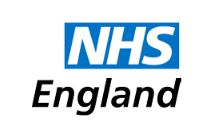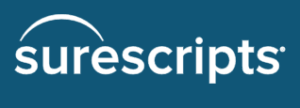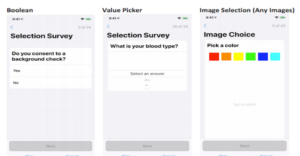- FDA issues warning on medical devices that are vulnerable to takeover from hackers (cnbc.com)
The Food and Drug Administration issued a warning to consumers...about potentially serious cybersecurity flaws in some medical devices that could allow hackers to take control of them remotely...Medical devices that use third-party, decades-old software called IPnet are at risk, the FDA said. The regulator said it’s not sure how many or even which specific devices, such as insulin pumps or pacemakers, are vulnerable to getting hacked...Researchers have identified 11 vulnerabilities that may allow “anyone to remotely take control of the medical device and change its function, cause denial of service, or cause information leaks or logical flaws, which may prevent device function.”...READ MORE
- German health minister Spahn promotes use of ePrescriptions at the DMEA 2019 (healthcareitnews.com)
The ePrescription is intended to generate added value for patients in Germany - and to stimulate digitisation in the healthcare market...The ePrescription is to be established in Germany by 2020. In April, German health minister Jens Spahn spoke at the DMEA 2019 (formerly conhIT) in Berlin about its benefits and opportunities in Germany...discussed the...implementation and the added value resulting from ePrescription and other online services for digitising the German healthcare system... The e-recipe will bring real added value. If we combine it with on-line consultations or pharmacy delivery services, the range of services offered to patients will be extended to bring the digital component to healthcare...READ MORE
- Britain’s Storied National Health Service Is Chasing A Tech Upgrade (forbes.com)
The British take enormous pride in their National Health Service…Get sick in Britain and you can see a doctor, get a scan or even have surgery for free...Unfortunately the system also depends on tax money that can’t keep pace with an ageing population who need greater care than ever. Its deficit is estimated to be closing in on £1 billion ($1.3 billion)...Many believe technology can make the NHS more efficient, and so it has partnered with private companies...to serve NHS patients at a lower cost, by connecting them with doctors on a video call or even an automated symptom checker...Some worry that such deals spell the slow-and-steady privatization of the NHS and a move (God forbid) towards a system that looks more like that of the United States. But Hancock (Matt Hancock - health secretary) believes these partnerships are necessary if the NHS is going to survive.
- Why hospitals need to adopt a ‘retail mindset’ when it comes to analytics (healthcareitnews.com)
Accountable care demands that data crunching these days be agile to enable quick pivots in strategy...With rising drug costs, value-based care, changes in reimbursement rules and more demanding consumers, there's no shortage of things that can change in a year. That means hospital IT departments need to employ quicker, more agile analytics that enable them to pivot in response to fast-changing conditions...And that’s why Dana Darger...director of pharmacy at Rapid City (South Dakota) Regional Hospital...said healthcare organizations need to think more like stores when it comes to issues of dollars and cents..."Hospitals have never behaved with what I'll call a retail mindset,” Darger said. “Retail stores can tell you what they make on everything."...As healthcare moves inexorably toward value-based reimbursement, entities are going to need to analyze data more quickly and make those retail-type business decisions..."If you look traditionally at the way pharmacy works, pharmacists tend to look at the world as expense-driven," said Darger. "They base things on what drugs cost, rather than what the margin is..."A lot of times, people are trying to get the data to say what they want it to say. You have to figure out how to let the data tell the story so you can make changes based on it."
- How medication management tech helps one hospital better identify interventions (healthcareitnews.com)
CGH Medical Center pharmacists say the system’s Med Card gives patients a better way to keep track of their medications – and say using the software has helped increase clinical knowledge...At CGH Medical Center in Sterling, Illinois, preventable readmissions represent a huge financial and clinical uncertainty...
- THE PROBLEM
- PROPOSAL
- MARKETPLACE
- MEETING THE CHALLENGE
- RESULTS
Pharmacists counseled more than 650 patients in the first eight months of the program at the 97-bed facility. They identified medication interventions in nearly half of all discharges. Depending on the intervention made, these changes had a major impact on patient safety and the cost of their medications...“While we haven’t been able to measure it yet, we are looking into how this program will impact our overall readmission rates and penalties, as well as HCAHPS scores,” said Tim Dunphy, director of pharmacy at CGH Medical Center...READ MORE
- FTC sues Surescripts, charges company with illegally monopolizing e-prescribing market (fiercehealthcare.com)
In its latest move to rein in what it views as anticompetitive tactics in the healthcare industry, the Federal Trade Commission filed a lawsuit against health information company Surescripts charging the company with illegally monopolizing the e-prescribing market...The FTC alleges that the company employed "illegal vertical and horizontal restraints in order to maintain its monopolies over two e-prescribing markets: routing and eligibility."... Surescripts has maintained at least a 95% share over many years...the FTC said it is seeking to undo and prevent Surescripts’s unfair methods of competition, restore competition, and provide monetary redress to consumers...READ MORE
- FDA unveils open source code for collecting patient data (healthcareitnews.com)FDA’s MyStudies Application (App) (fda.gov)
The Food and Drug Administration launched a new app Wednesday to gather data for clinical trials and other research directly from patients...The FDA released the MyStudies app source code to the public, allowing developers and researchers to tailor the app to suit their research needs. The agency designed the app to facilitate the use of real-world data in research...Patients can submit real-world data to the app via their mobile devices. Researchers can then link those data to other electronic health information. The goal is to improve drug development...“Better capture of real world data, collected from a variety of sources, has the potential to make our new drug development process more efficient, improve safety and help lower the cost of product development,” FDA Commissioner Dr. Scott Gottlieb said in a statement. “Our hope is that the collection of more real world data directly from patients, using a secure app, will lead to more efficient product development and assist with safety monitoring.”
- French drugmaker Sanofi, Google to use data tech for innovations (reuters.com)
...Sanofi has teamed up with Google to work on innovations, aimed at using emerging data technologies to change how medicines and health services will be delivered in future...Sanofi and Google will use data sets to improve their understanding of key diseases and extract patients’ insights and feedback...Combining Sanofi’s biologic innovations and scientific data with Google’s industry-leading capabilities, from cloud computing to state-of-the-art artificial intelligence...READ MORE
- Computerized method helps better protect pharma patents (news-medical.net)
Routes to making life-saving medications and other pharmaceutical compounds are among the most carefully protected trade secrets in global industry. Building on recent work programming computers to identify synthetic pathways leading to pharmaceutically complex molecules, researchers in Poland and South Korea have unveiled computerized methods to suggest only synthetic strategies that bypass patent-protected aspects of essential drugs...When we started this project, I was somewhat skeptical that the machine would find any viable synthetic alternatives--after all, these are blockbuster drugs worth gazillions of dollars, and I was sure that the respective companies had covered the patent space so densely that no loopholes remained. It turns out that the loopholes are there, and we can find new retrosynthetic pathways that circumvent the patents entirely."( Bartosz Grzybowski )...the researchers hope that their software will aid pharmaceutical companies in better protecting their intellectual property and, simultaneously, will help accelerate research and development in organic chemistry by supplying synthetic routes that differ from standard approaches.
- The search for new drugs is coming to your house (fastcompany.com)
Virtual trials could address some of the problems that come with developing new drugs, but a host of challenges remain before they can become routine...Last October, AOBiome Therapeutics...announced the results of a 12-week clinical trial of an experimental acne drug. In the randomized double-blind and placebo-controlled trial, a topical spray containing a beneficial bacteria was shown to be safe and effective in reducing the severity and number of acne lesions, the company said...The drug must successfully go through another round of testing–what’s called a Phase III trial–before AOBiome can apply to the Food and Drug Administration for marketing approval...Volunteers for the completed trial were recruited through social media and internet advertisements, and more than 8,000 people were screened online to see if they were eligible. The resulting 372 participants received the drug or a placebo in the mail and used company-issued iPhones to take selfies of their acne, a phone app to send the photos to physician-investigators for evaluation, and video conferencing to communicate with study staff...That’s markedly different from a typical drug trial...AOBiome’s acne drug trial, there were no in-person screening interviews, and no doctor visits. The trial was entirely what people in the trade call “virtual.”...Whether virtual clinical trials are the way forward is a matter of some debate, and industry analysts say a host of challenges remain before virtual trials–which currently represent a tiny fraction of the more than 100,000 registered clinical research studies in the United States–become the norm. These include overcoming a conservative corporate culture, ensuring that the technology is easy for patients to use, managing and analyzing the enormous amount of data that round-the-clock sensors generate, and proving the data’s reliability and validity to regulators...










